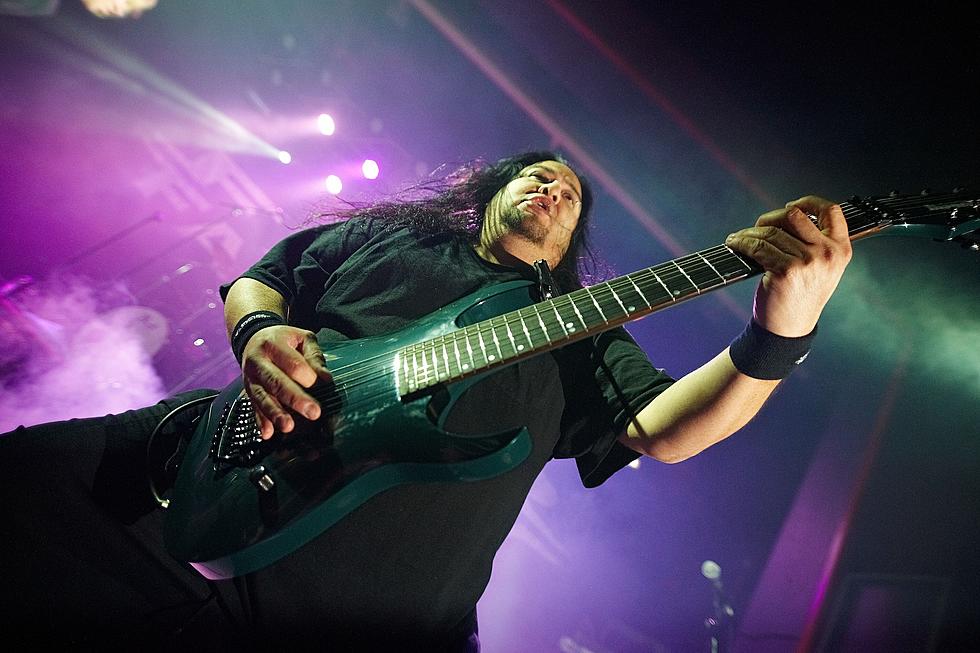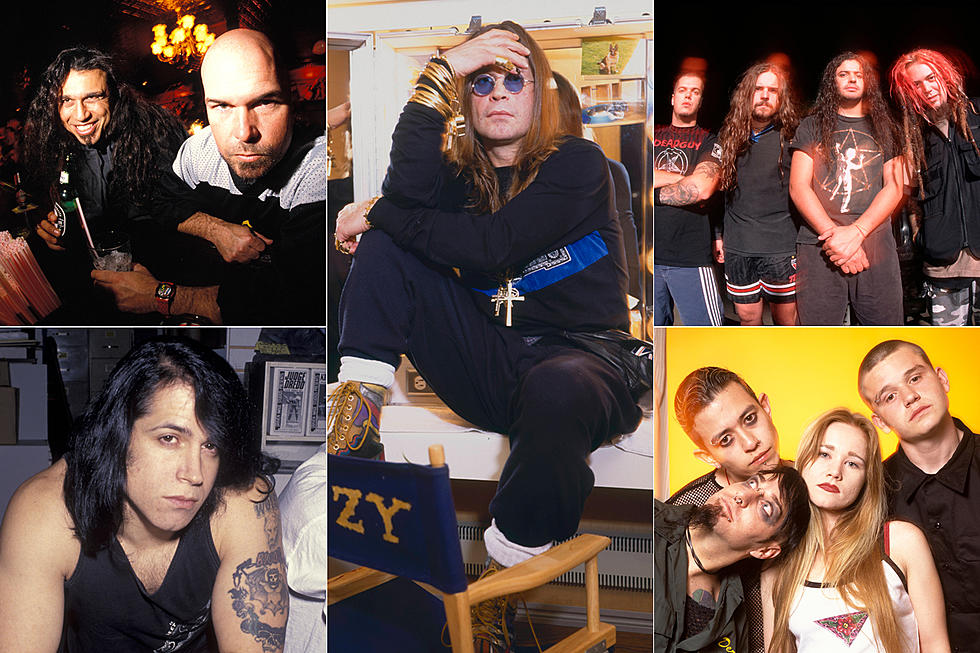
Dino Cazares on the Metal Labels That Rejected Fear Factory’s Early Demo
Fear Factory figurehead and guitarist Dino Cazares recently listed a few of the metal record labels that turned down the act's first demo. And the roll of rejecters includes plenty of well-known imprints.
Indeed, the rocker named names — label names, that is — in a Metal Hammer interview that emerged on Thursday (July 22). The revelations came during the extensive chat that also covered Fear Factory's latest album, last month's Aggression Continuum, and the band's recent split with lead singer Burton C. Bell, whose vocals are included on the record. (So far, Fear Factory have yet to confirm a new vocalist.)
The story of how Fear Factory eventually did get signed, however, involves Soulfly mastermind and former Sepultura member Max Cavalera. He passed word of the group's early Ross Robinson-produced demo tape to just the right person to secure Fear Factory a deal with Roadrunner Records in the early 1990s.
"I was using the Ross Robinson demo to shop Fear Factory to record companies," Cazares remembered. "A lot turned me down: Metal Blade, Earache, Nuclear Blast, Peaceville. There was a music convention going on in [Los Angeles] — all the record companies went there. It was a place to be seen, watch bands and party."
The Fear Factory icon attended and "ran into Max, and he knew me from [separate Cazares act] Brujeria. I told him about Fear Factory, we went to his hotel room and put the cassette on. He said, 'This is killer! I'm gonna keep it.' It was my only copy. Max wouldn't give it back; I had to wrestle him on the hotel bed to get it back! Luckily, he told Monte Conner [then-A&R at Roadrunner] about it. That's pretty much how we got signed."
The gambit clearly paid off for Fear Factory, who went on to release albums such as their 1992 debut, Soul of a New Machine — nearly a reworked version of the first demo — and its 1995 follow-up, Demanufacture.
Elsewhere in the interview, Cazares was asked how he perceives reporting about himself and his band on music news sites. While understandably taking issue with being misrepresented, he gave a level-headed view of the relationship between artist and press.
"It doesn't matter what you say, people will twist it however they want to," Cazares said. "A million websites … have used my tweets as news stories and sometimes they don't give the full context. We're both a necessary evil — without the musicians saying controversial things, you're not gonna have a website where you can make money off advertising. At the same time, we need those websites; they keep certain artists relevant."
10 Times Rock and Metal Tour Lineups Didn’t Make Any Sense
More From Loudwire









